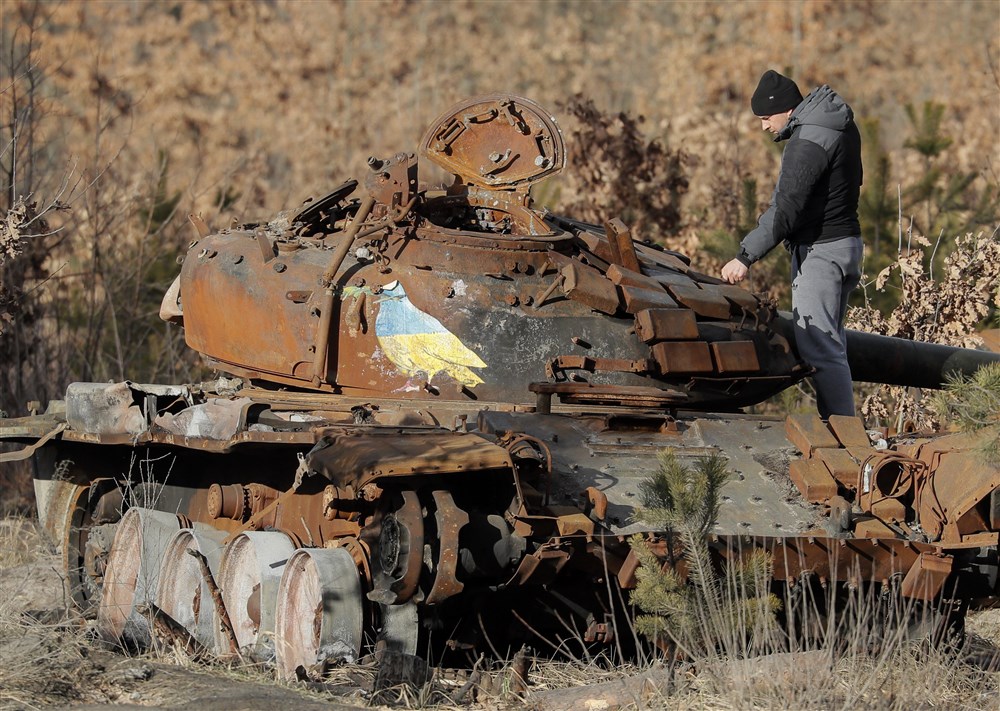Among a growing list of atrocities and human costs, Putin’s war of aggression against Ukraine has taken an especially heavy toll on the region’s journalists and independent media.
In the year since Russia’s full-scale invasion of Ukraine began, journalists in both countries have faced a surge of attacks at the hands of Russian forces and authorities, with at least 914 cases of physical attacks, censorship, harassment, arrests, and other press freedom violations, according to International Press Institute (IPI) monitoring data.
At least ten journalists and media workers have been killed in Ukraine in connection with their work, in some cases in targeted attacks by the Russian military. Journalists working in Ukraine have also repeatedly come under fire from Russian forces, and have faced harassment, detention, and censorship in Russian-occupied regions. The Russian military has also shelled media outlets, offices, and TV towers in Ukraine.
In Russia, there have been hundreds of cases of censorship, arrests, and other restrictions as a result of Putin’s sweeping crackdown on independent news that has pushed a wave of Russian journalists and media into exile.
IPI began systematically monitoring these violations and threats at the outset of the invasion on February 24, 2022. Our public database, the IPI Ukraine War Press Freedom Tracker, documents physical and other attacks on journalists covering the war in Ukraine, as well as acts of censorship; arrests and criminal charges against journalists; repressive new media legislation; and restrictions on access to information.
“Our data confirms that in this war of aggression against Ukraine, media are clearly targeted by Russian forces and authorities. Amid a growing list of atrocities and incalculable human suffering, Putin’s war of aggression against Ukraine has taken an especially heavy toll on the region’s journalists and independent media”, IPI Executive Director Frane Maroevic said.
“The data we collected on these attacks illustrates the nature, scope, and sheer brutality of Putin’s war against the media in both countries — and the risks that so many journalists face as they continue to report independently on this war. The IPI global network stands by our brave colleagues in Ukraine as well as the Russian independent media community as they seek to report on and document the horrors of Russia’s war for their communities and for all the world to see.”
Putin’s war on journalism in Ukraine
Our research shows that journalists in Ukraine have borne the brunt of the physical brutality of this war, while Russian media have faced severe legal harassment and repression.
In Ukraine, IPI has documented more than 300 press freedom threats or violations since the war’s start, most of which are physical, verbal, or online attacks perpetrated by Russian forces. This includes over 100 cases of physical attacks and threats to journalists’ safety, with dozens of journalists covering the war coming under threat from Russian fire or shelling. More than 30 journalists were wounded in such attacks. In several cases, journalists in Russian-occupied Ukraine have been detained or abducted.
IPI’s Tracker has documented the deaths of 12 journalists in Ukraine, ten of which are confirmed to have been killed in the line of duty. Deliberate attacks on journalists in areas of armed conflict constitute a war crime for which those responsible must be held to account.
IPI has also recorded close to 30 cases of attacks on Ukrainian media infrastructure, as well as several dozen cyber attacks on Ukrainian news outlets.
A small number of media freedom violations are attributed to Ukrainian authorities, including several cases in which authorities have denied access to information or stripped foreign journalists of accreditation. Ukraine’s new media law has also raised concerns among parts of the country’s media as well as abroad. These cases underscore the importance of upholding media freedom even in times of war so as to ensure the free flow of news and information.
Putin’s war on journalism at home
IPI has documented over 600 press freedom threats or violations in Russia since the war’s start, including over 300 cases in which journalists and media faced fines, publication bans, or other administrative measures for reporting on the war. This also includes over 150 arrests or charges against journalists and nearly 200 cases in which news sites were blocked by Roskomnadzor, Russia’s internet regulator.
Restrictive legislation introduced at the start of the war prohibits media from using words such as “war”, “invasion” or even “front” (instead, the media must refer to the war as a “special military operation”). Journalists who dare to report the truth risk fines or jail for “discrediting” Russian forces. News stories about the war that do not use official Russian sources are deemed “fake news”, which is a criminal offense under Russian law. Authorities have also mobilized pre-existing “foreign agent” laws and regulations targeting “undesirable” organizations to further tighten the screws on the remaining independent media.
The data cited above reflects the latest information collected by IPI as of February 22. Visit IPI Ukraine War Press Freedom Tracker to explore the data and view the most updated information.
